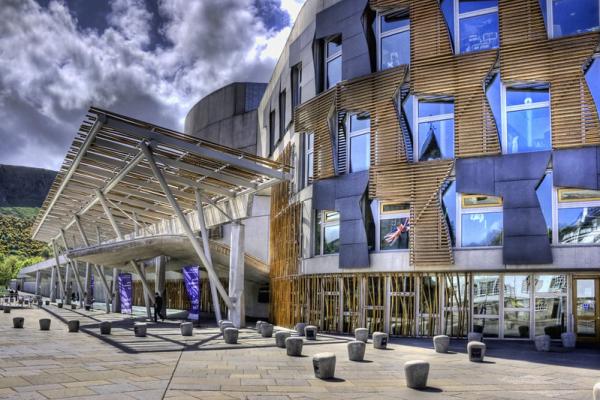The replacement of Nicola Sturgeon as First Minister by Humza Yousaf on 28 March 2023 was an intensely political event but it was precipitated by two novel uses of devolution legislation. In June 2022 Sturgeon attempted to resolve the tension between her wish to legislate for a second independence referendum and her law officers’ advice that the Scottish Parliament did not have the power to do so. By using Schedule 6 of the Scotland Act 1998 she sought to obtain the Supreme Court’s adjudication on the matter without even introducing the bill. The Court took on the brief against the resistance of the UK government and responded to the Lord Advocate’s even-handed setting-out of the arguments by a strong statement of the lack of such powers. Perhaps unwittingly the Court also undermined the concept advocated by Sturgeon of the government-sponsored ‘advisory referendum’ without legal effect. Any future indyref 2 would have to be agreed by the UK government and would require the result to be respected and implemented. Sturgeon’s ‘plan B’ of using the next UK general election as a ‘de facto’ referendum did not survive scrutiny and left her independence strategy stalled. Much of the leadership campaign skirted around whether there might ever be a circumstance in which the SNP could use election results as the basis of in some way declaring independence.
In January 2023 it was the UK government who picked up an unused legal instrument by disallowing the Gender Recognition Reform Bill passed by the Scottish Parliament under section 35 of the Scotland Act, contending that it made ‘modification of the law’ and ‘would have an adverse effect on the operation of the law’ ‘as it applies to reserved matters’. The ‘and’ (not ‘or’) is important as modification of the law (in this case the Equality Act 2010) is the more precise test.
The UK’s government’s reasoning, set out on 17 January 2023, cries out for judicial review (on precise legal grounds rather than a futile claim of democratic right on the basis of the large cross-party majority for the bill). Unable to claim that the bill is legislatively incompetent in Scots law, its objection is that it ‘expands the category of people who will be regarded as women under the 2010 Act…this is a substantive change to what a ‘man’ or a ‘women’ is for the purposes of the 2010 Act’. The UK’s case sets out much detail about the practical and legal complications the bill might cause. As the section also gives a power to disallow a bill on the grounds that it would be incompatible with the interest of national security, a concept now applied in respect of business takeovers by the National Security and Investment Act 2021, the testing of its limits at the first opportunity is desirable lest it stray into an expansive UK claim to veto devolved laws.
The two cases were the backdrop for the shocking resignation of Nicola Sturgeon as SNP leader on 15 February. Sturgeon had lost the initiative on independence strategy and lost her watertight party discipline on a matter more prudently left to a free conscientious vote. Generally needing a break from the demands of office and personalised attacks, Sturgeon walked away but in doing so exposed policy tensions in the SNP almost inevitable when an independence movement becomes a long-serving governing party. Her two predecessors did not leave politics and the scenario of a Sturgeon comeback if an independence majority consolidates will remain plausible unless she does.
Yousaf’s modest vote (48.2% on the first round, 52.1% on the second) suggests that a more adroit presentation by Kate Forbes of her faith and policy issues would have taken her to victory. Rather like Boris Johnson’s offer of the defence ministry to his rival Jeremy Hunt in 2019, Yousaf’s offer of Rural Affairs to Forbes expressed ambivalence about whether it was meant to be accepted or refused. In both cases, the victor’s team took the prizes and protestations of a reunited party looked hollow.
The new First Minster has gifts of personability perhaps seen to better advantage in the top job than a policy portfolio. Politics is the sum of his young life – choice of university degree, working for MSPs, one himself, minister, promotion. He is likely to represent the nation well and relate congenially in the public sphere, notably at the Coronation with no doubt a choice of fashion statement. He takes over from Sadiq Khan as the UK’s most prominent Muslim politician, an important role.
The political timetable now maps itself out – a possible Rutherglen by-election at which a Labour gain would be the default expectation, a UK general election in which small variations up or down in the SNP vote will be watched, a likely Labour government that would expose the level of support for independence to the absence of Conservative rule in London. The Holyrood election of 2026 will be the pivotal event, either ejecting the SNP from office or giving them a strong political claim for a second, decisive, independence referendum.

